Special report: Helping healthcare in Uganda
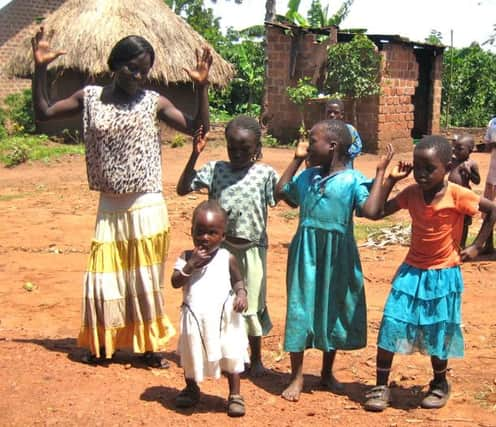

There’s a lot of pomp and ceremony as we arrive in Jinja, south eastern Uganda. The streets are packed with people, police and security, and a crackly voice booming over a loudspeaker explains that the deputy king is in town.
He’s on a tour of the country, inviting Ugandans to contribute money for renovations to the palace and the royal burial grounds. The assumption is that people ought to be honoured to help, but our driver, TUSC project manager Weere Yakub, is unimpressed.
Advertisement
Hide AdAdvertisement
Hide Ad“Maybe if he did something for the people, like build a hospital or do something for the children, it would be okay. But the people get nothing,” he says.
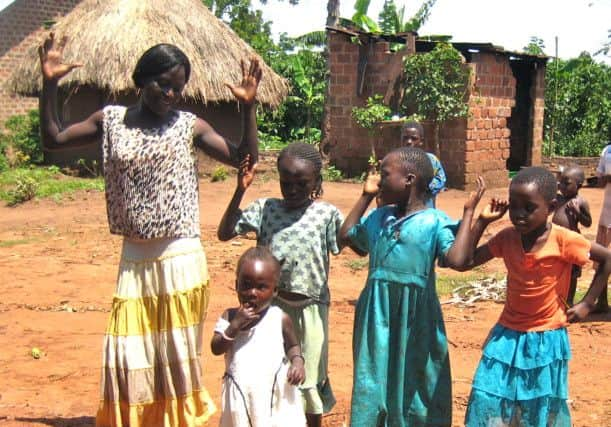

This is a common theme in Uganda, where corruption is rife. Politicians, mostly motivated by greed and power, turn a blind eye to the plight of the thousands in need.
The situation is getting worse. Understandably keen to distance themselves from Uganda’s anti-gay laws, foreign organisations are pulling aid out of the country. But it’s the people on the ground - who have zero influence over political decisions - that are suffering.
Dubbed ‘the pearl of Africa’ by Winston Churchill, Uganda is rich in natural resources, including fertile soils, regular rainfall, and sizeable mineral deposits of copper and cobalt.
Advertisement
Hide AdAdvertisement
Hide AdYet thousands of people are living in extreme poverty. Many are crammed into shanty towns in the capital Kampala, while others squeeze into huts made from sticks and mud in rural villages. They live off what they can grow which keeps starvation at bay, but malnutrition is common. Children are barefoot and dressed in rags, and families live miles from healthcare.
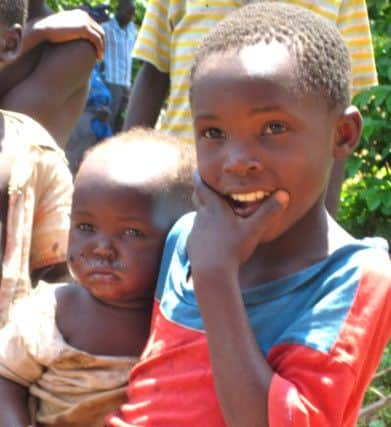

Which is where TUSC (Transport for Uganda’s Sick Children) comes in. Founded in 2012 by my mum, Lancashire health visitor Carol Mitchell, TUSC is a small charity which transports children and pregnant women to healthcare, as well as vulnerable adults.
“It was an idea that came to me a couple of years ago after I’d been lucky enough to visit Uganda a few times,” Carol explains. “After advising the children and the pregnant ladies ‘you need to go to the hospital’, I soon realised I was talking rubbish because they just really couldn’t get there.
“So we did some fundraising, we employed a really good community manager, bought a vehicle, and we’re busy taking sick children and pregnant women to health care.”
Advertisement
Hide AdAdvertisement
Hide AdKnown as ‘Billy bus’ in the villages, the vehicle is an eight-seater Toyota Noah. Named in memory of a loved one whose funeral collection was donated to the cause, it was purchased thanks to the generosity of well wishers in the UK.
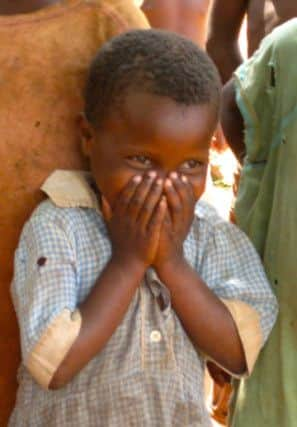

Since the vehicle was purchased in November 2012, TUSC has transported 1500 people to healthcare. Around 50 of these have been women with obstetric emergencies, with one baby actually being born in Billy.
“Children and pregnant women are our priority, but we’ve also transported many older and disabled people too,” Carol says. “We especially try to help older people in grandparent headed families, as if they get sick then there is no-one else to look after the children.”
During my two-week visit, I see just how important Billy bus is to the communities it serves. Not only does it take patients to clinics and hospitals, it also takes outreach teams into the villages for follow-up care. TUSC also delivers health promotion education in the communities, and provides mosquito nets where it can.
Advertisement
Hide AdAdvertisement
Hide AdYakub is well known and respected by both villagers and medical staff alike, and is called out day and night to transport patients.
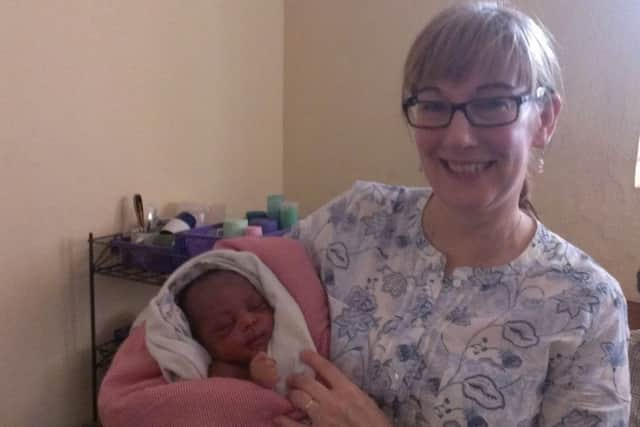

As the days go by myself and the team - which includes four fantastic healthworkers from Lancashire who are spending a month in Uganda volunteering with TUSC - fall into a routine of visiting remote villages, nestled at the end of long, potholed tracks. The ladies deliver basic health education and advise the many who come to see them with problems. When children see us in Billy, they run to the road, shouting ‘Mzungu, Mzungu’ (white person) and wave to us as we go by.
Halfway through my stay we go to the children’s hospital to hand over a collection of medical supplies donated in the UK. A queue consisting of literally hundreds of children and parents snakes around the buildings. Some could be waiting all day and all night to be seen, but they wait patiently. I’m told that not too long ago they didn’t have a facility like this in Jinja so they’re grateful for what they’ve got.
The main hospital is also worlds away from any hospital I have ever seen. As I’m shown along the orthopaedic ward by the wonderfully bright and gentle Dr Mike, where patients lie with broken legs in traction or arms in splints, I’m struck by the farm-like smell - a far cry from the medical facilities we have come to expect at home.
Advertisement
Hide AdAdvertisement
Hide AdBut the TUSC volunteers, all vastly experienced nurses, are impressed with what’s being achieved. They tell me the ward is fairly clean, and that those fortunate enough to be in the hospital were being treated appropriately.
It’s not difficult to see why Carol has completely fallen for this country and its people - the Ugandans are glorious - so welcoming and ridiculously thankful for the smallest of things. Having visited twice a year for the last four years, she’s now taken a career break, and is staying in Jinja for six months to help Yakub on the ground, and further develop the outreach work.
This also means she can keep a close eye on TUSC’s regular patients, including five-year-old Rachel. Many cases have resonated with TUSC’s friends and followers over the last 18 months, none more so than this beautiful little girl, who fell into a fire in May 2013.
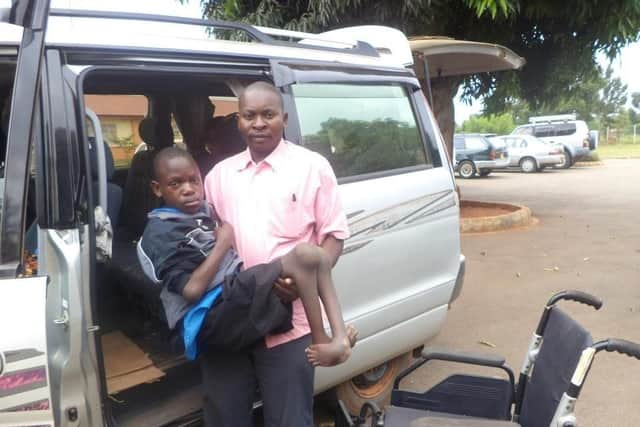

When Yakub first came across Rachel, who lives in Wabukwa village with her Jaja (grandmother), a large burn covered the whole of her torso and chest, with her legs, arm and chin also effected.
Advertisement
Hide AdAdvertisement
Hide Ad“Sometimes the work takes a direction that we don’t expect,” Carol says. “While we can’t generally provide healthcare or healthcare costs, we’re only human, and sometimes we just can’t walk away. Rachel was an example of that.
“It’s a difficult ethical dilemma,” she admits, “because we can’t treat every child that we come across. But sometimes the humanity side rather than the business side takes over.”
TUSC found Rachel last November, six months after she sustained her burns. “The wound was still extensive, covering her whole abdomen and her chest,” Carol says. “It was covered in ash to keep the flies out, that was the only treatment. Rachel had a high temperature, was in a lot of pain and was a very sad little girl. We just couldn’t walk away, so through the generosity of our friends TUSC has provided healthcare for Rachel, and we are still undertaking dressings and care for this little girl.”
Rachel has given TUSC scares during the time the charity has been helping her. A number of infections could easily have become very serious very quickly, particularly given how small and frail she is. So it is great to hear, as I embark on the hour-long journey from Jinja to meet her, that she finally seems to have turned the corner.
Advertisement
Hide AdAdvertisement
Hide AdRachel is waiting outside her grandmother’s hut when we arrive in Wabukwa. Well used to the procedure by now, she takes her dress off when she sees us, and lies down on the floor. As the TUSC volunteers change the dressing, it’s clear to see the wound has reduced in size significantly, and the team thinks she is ready to go back to the village school.
“Without the support of our donors back home, the fantastic medical and nursing staff that we’ve made links with, and the willingness of our project manager Yakub, Rachel would not be alive, and that’s the reality,” Carol says. “And if TUSC only does that, then it’s all been worth it.”
Of course it doesn’t only do that, it does so much more. To find out more search for Tusc Uganda on facebook.